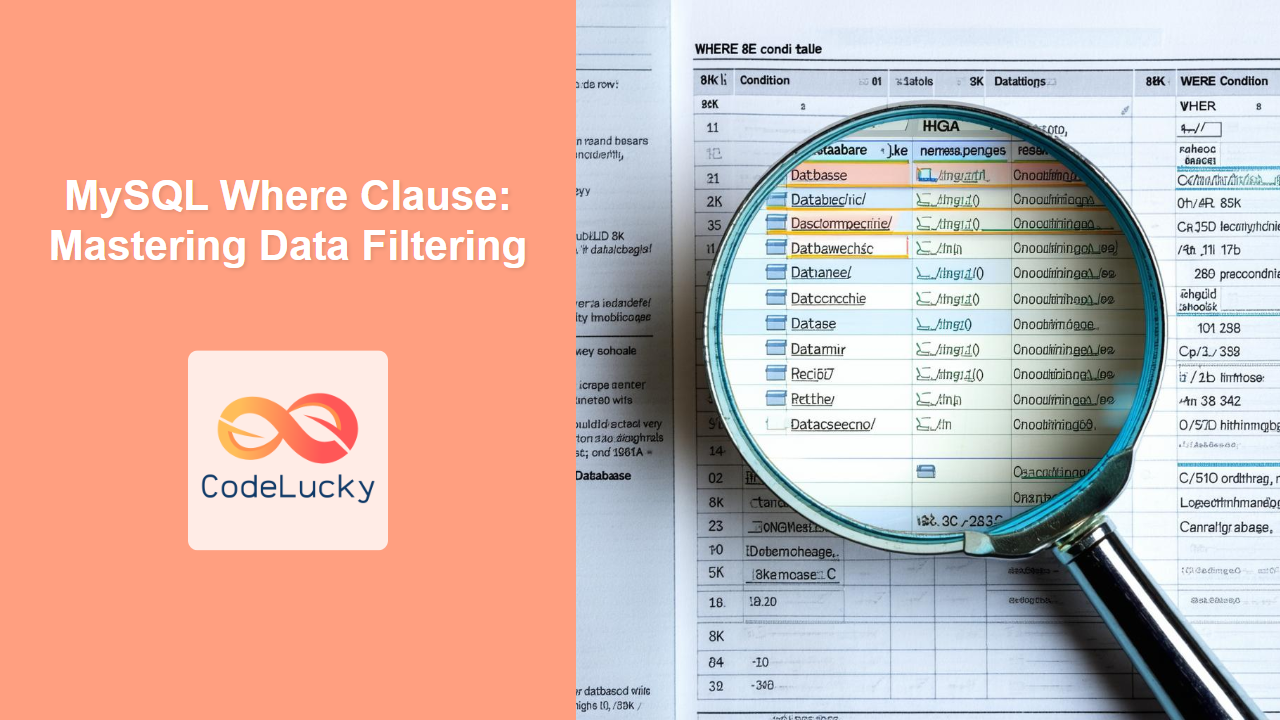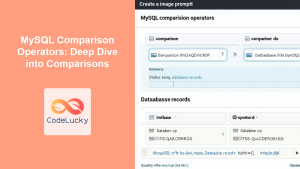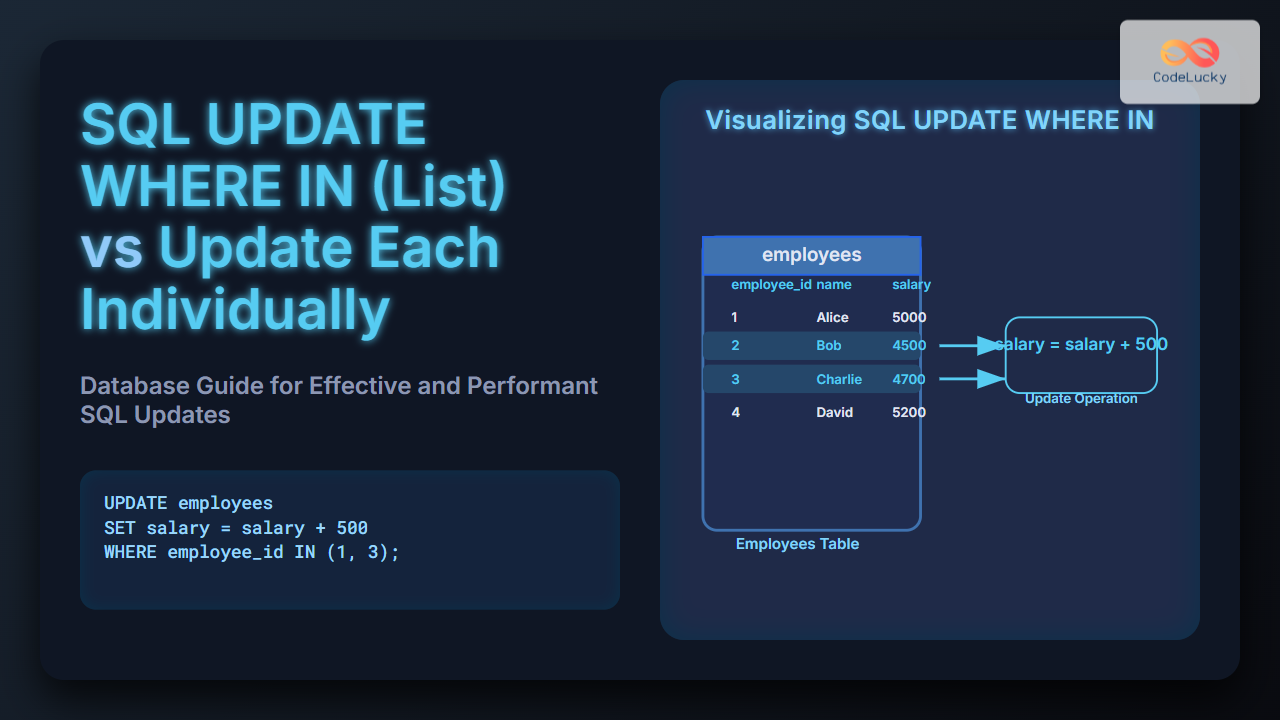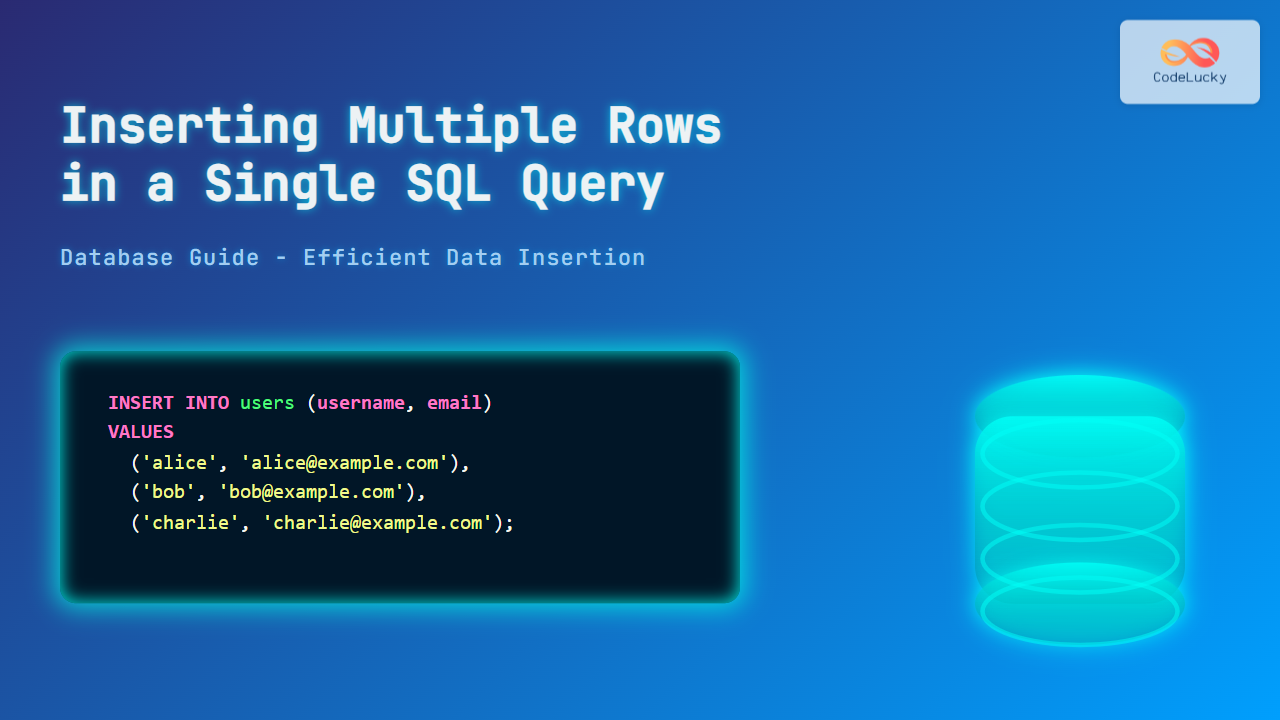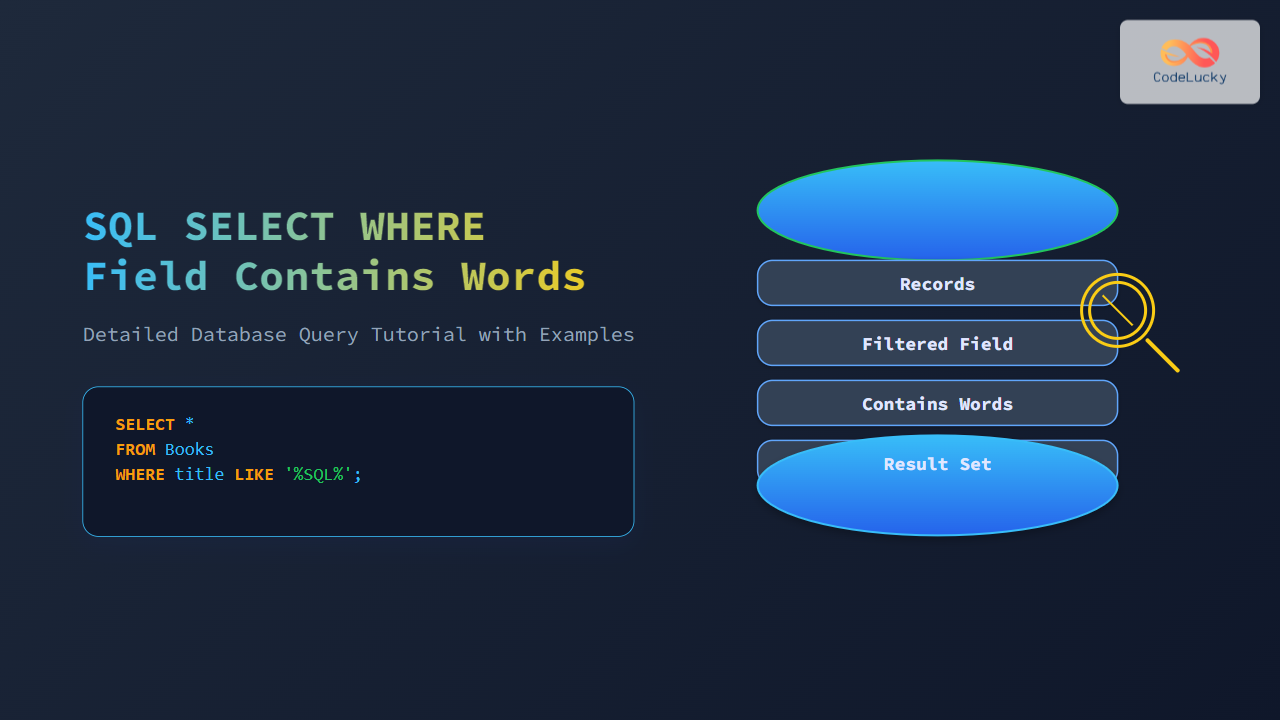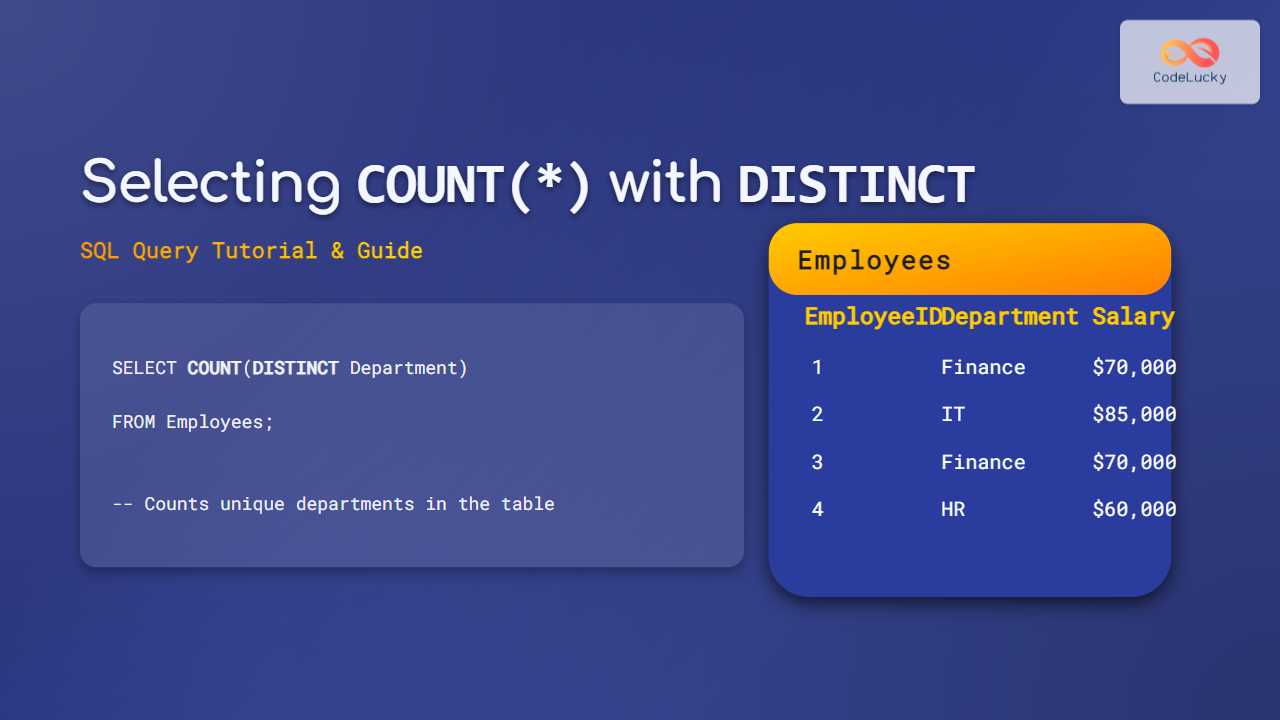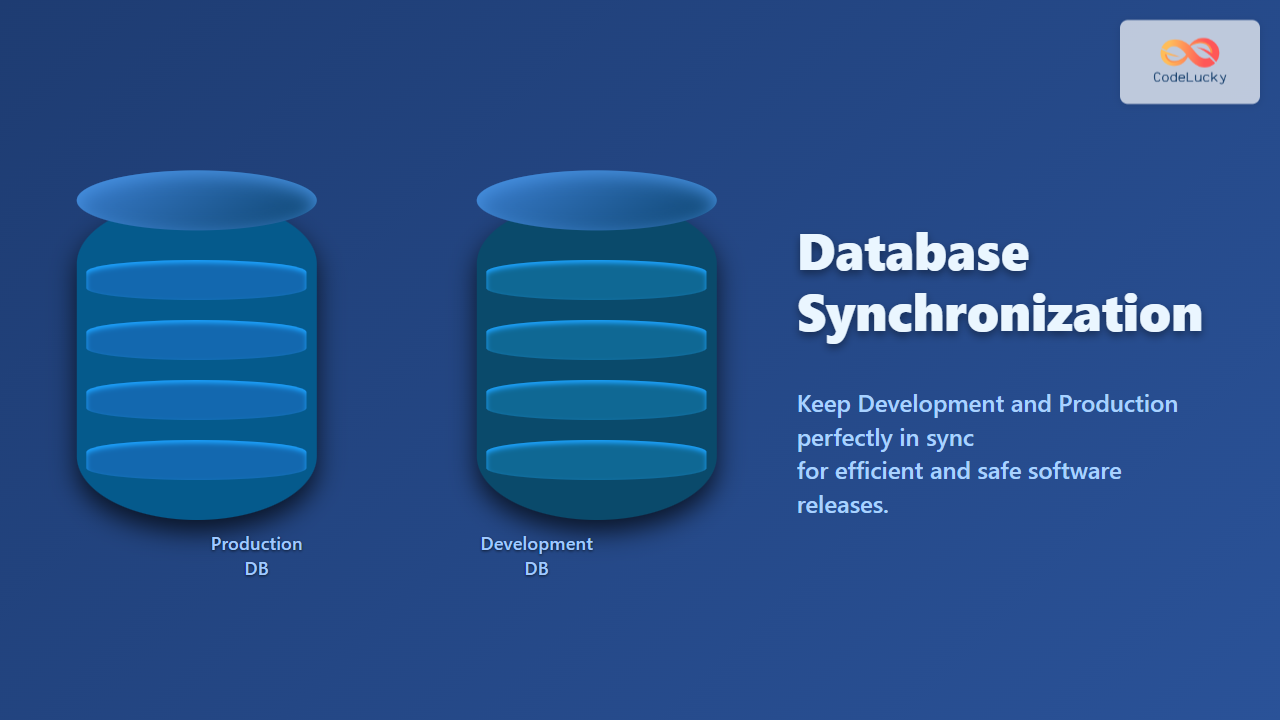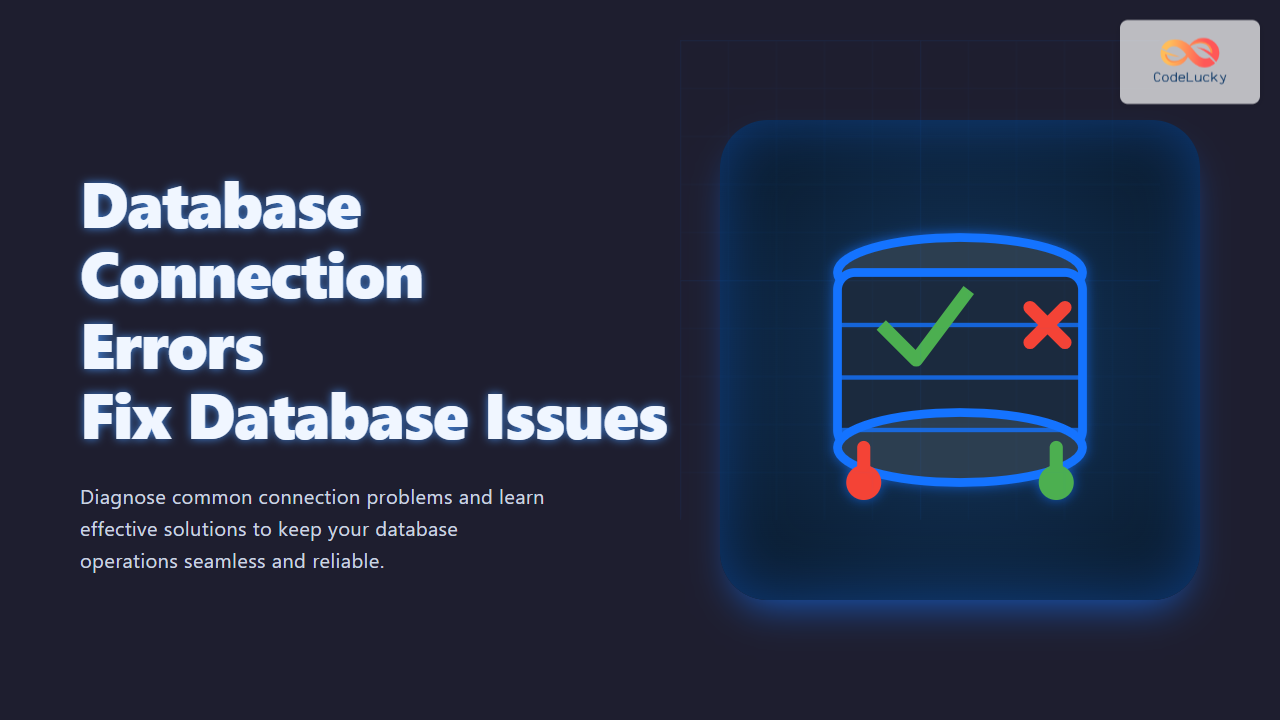The WHERE clause is the gatekeeper of your MySQL queries, allowing you to retrieve only the data that meets specific conditions. It’s like a super-powered search engine within your database, ensuring you get exactly what you need. Fun fact! 💡 The WHERE clause is used in almost all database queries to filter records!
Why is the WHERE Clause Essential?
Without the WHERE clause, you’d be forced to sift through all the data in your table, which is like looking for a single grain of sand on a beach. Here’s why it’s so important:
🌟 Key Benefits:
- Precise Data Retrieval: Fetch only the data you need, reducing the amount of data to process.
- Performance Boost: By limiting the data set, you improve the speed of your queries.
- Targeted Insights: Extract specific information for analysis, reporting, and application logic.
Let’s see how to wield this powerful tool!
Basic Syntax of the WHERE Clause
The WHERE clause is always used in conjunction with SELECT, UPDATE, or DELETE statements. Its fundamental structure is simple yet incredibly versatile:
SELECT column1, column2, ...
FROM table_name
WHERE condition;
💡 Interesting Fact: The concept of filtering data using conditional logic is based on Boolean Algebra, which has been a cornerstone of computer science since the mid-19th century!
For example, let’s filter customers from a customers table based on their city:
SELECT *
FROM customers
WHERE city = 'Delhi';
Output:
| customer_id | first_name | last_name | city | |
|---|---|---|---|---|
| 2 | Priya | Sharma | [email protected] | Delhi |
Comparison Operators: Your Filtering Arsenal
The WHERE clause uses comparison operators to evaluate conditions. Here’s a breakdown:
Equal To (=)
Checks if two values are equal:
SELECT *
FROM products
WHERE category = 'Electronics';
Output:
| product_id | product_name | category | price |
|---|---|---|---|
| 1 | Laptop | Electronics | 1200 |
| 2 | Smartphone | Electronics | 800 |
Not Equal To (!= or <>)
Checks if two values are not equal:
SELECT *
FROM products
WHERE category != 'Electronics';
Output:
| product_id | product_name | category | price |
|————|————–|———-|——-|
| 3 | T-Shirt | Apparel | 25 |
| 4 | Jeans | Apparel | 60 |
Greater Than (>) and Greater Than or Equal To (>=)
Checks if one value is greater than or greater than or equal to another:
SELECT *
FROM orders
WHERE total_amount > 150;
Output:
| order_id | customer_id | total_amount | order_date |
|———-|————-|————–|————|
| 1 | 1 | 200.00 | 2023-06-15 |
| 2 | 2 | 300.00 | 2023-06-16 |
SELECT *
FROM orders
WHERE total_amount >= 200;
Output:
| order_id | customer_id | total_amount | order_date |
|———-|————-|————–|————|
| 1 | 1 | 200.00 | 2023-06-15 |
| 2 | 2 | 300.00 | 2023-06-16 |
Less Than (<) and Less Than or Equal To (<=)
Checks if one value is less than or less than or equal to another:
SELECT *
FROM products
WHERE price < 50;
Output:
| product_id | product_name | category | price |
|————|————–|———-|——-|
| 3 | T-Shirt | Apparel | 25 |
SELECT *
FROM products
WHERE price <= 50;
Output:
| product_id | product_name | category | price |
|————|————–|———-|——-|
| 3 | T-Shirt | Apparel | 25 |
Combining Conditions
You can create complex filters by combining multiple conditions using the AND, OR, and NOT logical operators (these will be covered in separate articles). Let’s see a quick example:
SELECT *
FROM customers
WHERE city = 'Mumbai'
AND last_name = 'Patel';
Output:
| customer_id | first_name | last_name | city | |
|---|---|---|---|---|
| 1 | Raj | Patel | [email protected] | Mumbai |
Performance Impact: Indexes Matter
The efficiency of your WHERE clause can be drastically affected by indexes.
Without Indexes
When a query with a WHERE clause is executed on a table without an appropriate index, MySQL performs a full table scan. This means it reads every single row in the table to check if it matches the condition. For large tables, this can take a significant amount of time.
With Indexes
When an index is present on the column used in the WHERE clause, MySQL uses the index to quickly locate the matching rows, avoiding the need to scan the entire table. This can improve performance dramatically.
Consider this query on a products table with 1 million rows:
SELECT *
FROM products
WHERE category = 'Electronics';
- Without an index on category: The query could take several seconds.
- With an index on category: The query could return in milliseconds.
🚀 Pro Tip: Always analyze your query performance and add indexes where necessary! Learn more in our MySQL Index Creation article.
Common Use Cases
- Filtering Users: Select all users who are in a specific role or location.
- Finding Products: Retrieve products within a price range or specific category.
- Locating Orders: Find orders made by a particular customer or within a date range.
- Data Validation: Identify records that do not meet specific criteria.
Best Practices
- Use Indexes: Create indexes on columns frequently used in your
WHEREclauses to drastically improve performance. - Avoid Functions: Using functions in the
WHEREclause often prevents index usage. For example,WHERE YEAR(order_date) = 2023is less efficient thanWHERE order_date >= '2023-01-01' AND order_date < '2024-01-01'. - Keep It Simple: Start with simple conditions and gradually add complexity as needed.
- Test Thoroughly: Verify your conditions with various inputs to avoid unexpected results.
Common Pitfalls
- Case Sensitivity: By default, string comparisons are case-insensitive in MySQL. Use
BINARYfor case-sensitive comparisons. - NULL Values: Be aware that
NULLvalues do not evaluate to true or false with standard comparison operators. UseIS NULLorIS NOT NULL.
Key Takeaways
You’ve learned how to use the WHERE clause to:
- Filter data using comparison operators such as =, !=, >, <, >=, <=.
- Combine conditions using logical operators (AND, OR, NOT – more in the next articles).
- Understand the importance of indexes for query performance.
Next Steps
Now that you’ve mastered the WHERE clause, it’s time to delve deeper into combining multiple conditions with logical operators:
With each new concept, you’ll become more proficient at crafting powerful SQL queries!
🎯 Final Thought: The WHERE clause is not just about retrieving data; it’s about efficiently accessing the precise information you need, making your database interactions smarter and faster!

